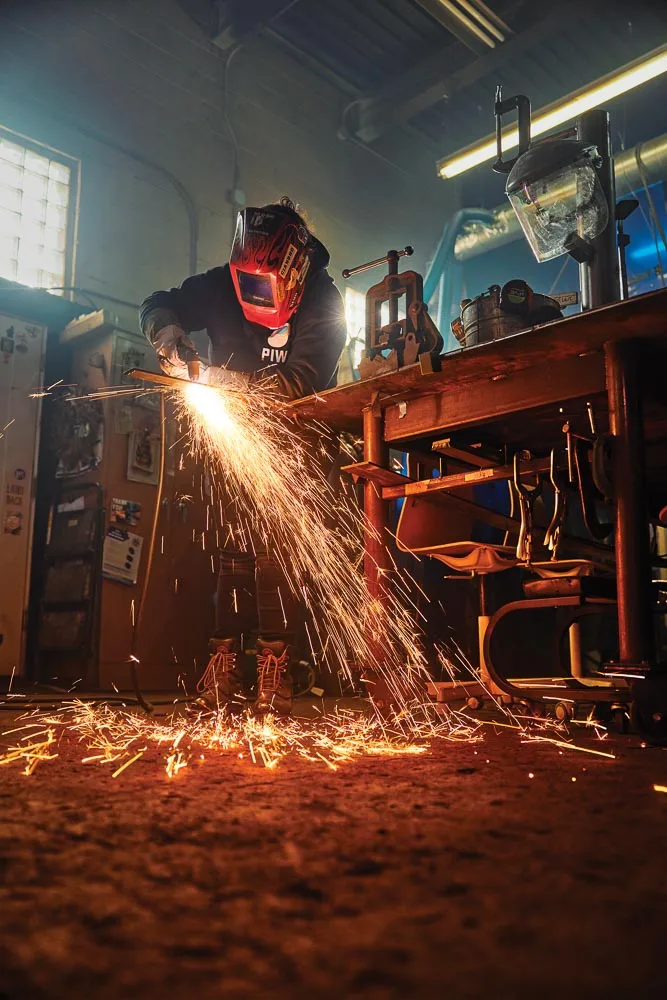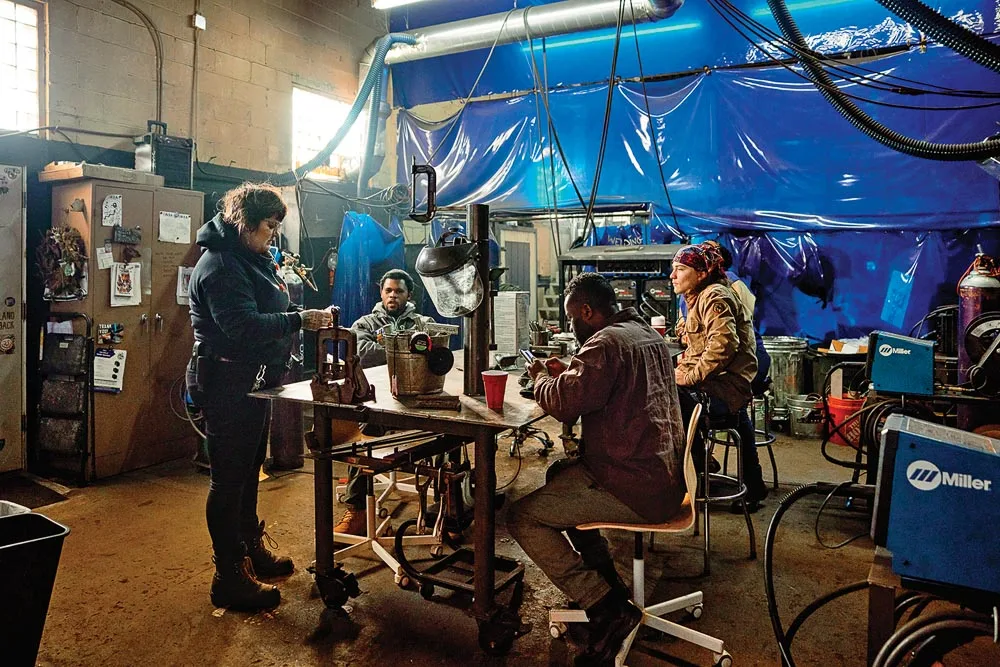By Hadley Gibson
Photos by Michael D. Wilson
From our July 2023 issue
In an industrial park in South Portland’s Cash Corner neighborhood, wedged between auto-body garages and equipment suppliers, a sign with a rainbow bursting out of a welding helmet marks the entrance to People’s Inclusive Welding. Classes at the shop are open to everyone, but founder and primary instructor Jo Remillard designed the school specifically to serve students from marginalized communities, particularly LGBTQ+ people and people of color. The subculture of blue-collar work can be intimidating to outsiders, Remillard says, but the goal of the South Portland shop is “to give folks a place that is geared towards making them feel like they’re allowed to be themselves.”



Remillard, who uses they/them pronouns, has worked as a shipyard welder at Bath Iron Works and as a bridge builder and a boilermaker on job sites across the country. Over the last 10 years, they found they were consistently the only openly queer person working such jobs and that coworkers were mostly white men. Remillard, who is also white, endured plenty of lewd and sexist comments on the job. Then, three years ago, a few former coworkers — Congolese immigrants Remillard had hit it off with — approached Remillard with an idea to start a school that would encourage people from under-represented groups to learn a trade. The partners later turned the project over to Remillard, who set out building a curriculum focused on students’ individual needs, more so than a typical trade school, and creating an enforceable zero-tolerance policy concerning discrimination, harassment, and violence.
People’s Inclusive Welding opened in 2021, offering an eight-week intensive program for those envisioning a career in the skilled trades, along with shorter courses for anyone wanting to brush up on their welding skills or simply learn the basics. Courses focus on safety and on several types of processes for what’s known as arc welding, employed in shipbuilding, aerospace, construction, and other industries to fuse metal together using intense heat from an electric arc. About 30 students, from as far away as California, have completed the eight-week program, and nearly all have gone on to secure welding jobs in Maine and elsewhere.

The school is filling a need: welders are in short supply everywhere. The Bureau of Labor Statistics predicts nearly 48,000 job openings a year over the next decade for welders, cutters, solderers, and brazers. The American Welding Society, which defines the profession a bit more broadly, predicts 90,000 annual jobs to be filled. Some 20 percent of the current workforce, the AWS reports, is approaching retirement.
This year, in partnership with the Maine Department of Corrections, People’s Inclusive Welding launched a program for incarcerated women. Six participants from the Southern Maine Women’s Reentry center at the Maine Correctional Women’s Center, in Windham, took a monthlong course at the prison, then completed 120 hours of structural welding instruction with Remillard at the school. “The trades don’t care about what you may have done in the past,” Remillard says. “Folks who have been incarcerated can make an entire career in the trades, one where they can build a retirement, buy a house, and be respected for their craft.”

Besides teaching skills that provide access to well-paid work — the national median salary for welding jobs is just shy of $50,000, says the AWS — Remillard educates students about principles that can protect them throughout their careers: workplace safety, workers’ rights, and when and how to say no to an assignment that might not be physically safe. The school also helps alumni find jobs, extends an open invitation for alumni to practice their welding in the South Portland shop, and helps proctor tests for students to obtain AWS certification — proof of transferable skills that opens doors for entry-level welders. “As we start to break apart the demographic of the welding industry, these students are the representation that the next person coming in needs,” Remillard says. “We are building that foundation.”




